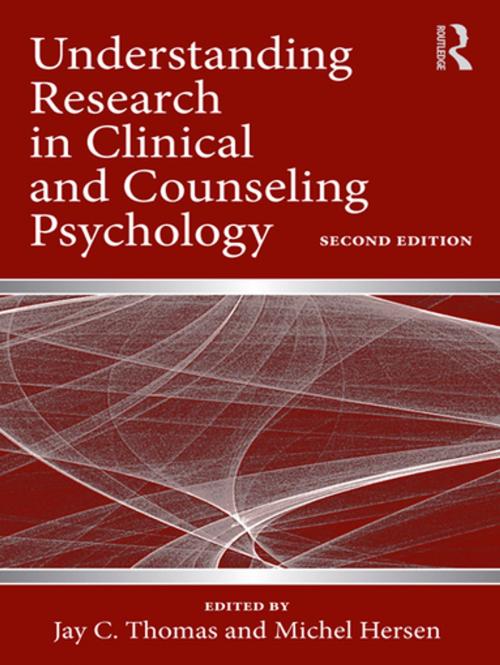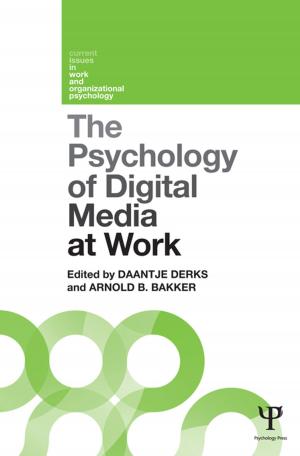Understanding Research in Clinical and Counseling Psychology
Nonfiction, Health & Well Being, Psychology, Research, Counselling, Clinical Psychology| Author: | ISBN: | 9781136831188 | |
| Publisher: | Taylor and Francis | Publication: | March 1, 2011 |
| Imprint: | Routledge | Language: | English |
| Author: | |
| ISBN: | 9781136831188 |
| Publisher: | Taylor and Francis |
| Publication: | March 1, 2011 |
| Imprint: | Routledge |
| Language: | English |
Understanding Research in Clinical and Counseling Psychology, Second Edition, is written and designed for graduate students in the psychology and counseling fields, for whom the value of psychological research is not always readily apparent. Contributed to by experts in their respective fields, this text presents research as an indispensable tool for practice, a tool that is used every day to advance knowledge and improve assessment, treatment choice, and client outcomes. The book is divided into four logical parts: Research Foundations, Research Strategies, Research Practice, and finally, Special Problems. Included is a chapter that addresses one of the most important controversies, the distinction between realistic and “gold standard” efficacy studies. The remainder of the book addresses salient issues such as conducting research in various cultures, operating an empirically-oriented practice, and performing research with families, children, and the elderly. Students and professors will find the coverage ample and penetrating, without being too overwhelming.
Understanding Research in Clinical and Counseling Psychology, Second Edition, is written and designed for graduate students in the psychology and counseling fields, for whom the value of psychological research is not always readily apparent. Contributed to by experts in their respective fields, this text presents research as an indispensable tool for practice, a tool that is used every day to advance knowledge and improve assessment, treatment choice, and client outcomes. The book is divided into four logical parts: Research Foundations, Research Strategies, Research Practice, and finally, Special Problems. Included is a chapter that addresses one of the most important controversies, the distinction between realistic and “gold standard” efficacy studies. The remainder of the book addresses salient issues such as conducting research in various cultures, operating an empirically-oriented practice, and performing research with families, children, and the elderly. Students and professors will find the coverage ample and penetrating, without being too overwhelming.















